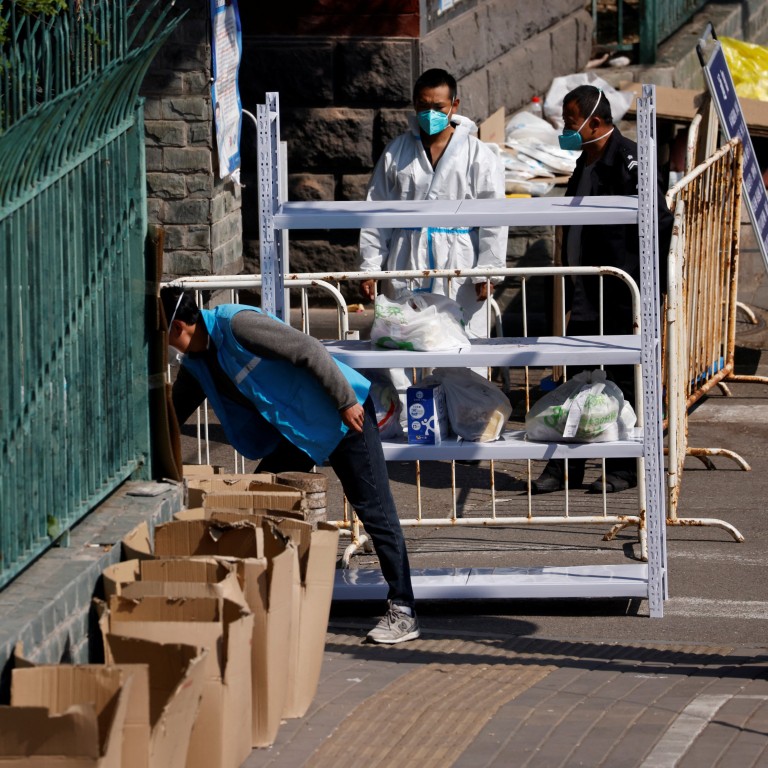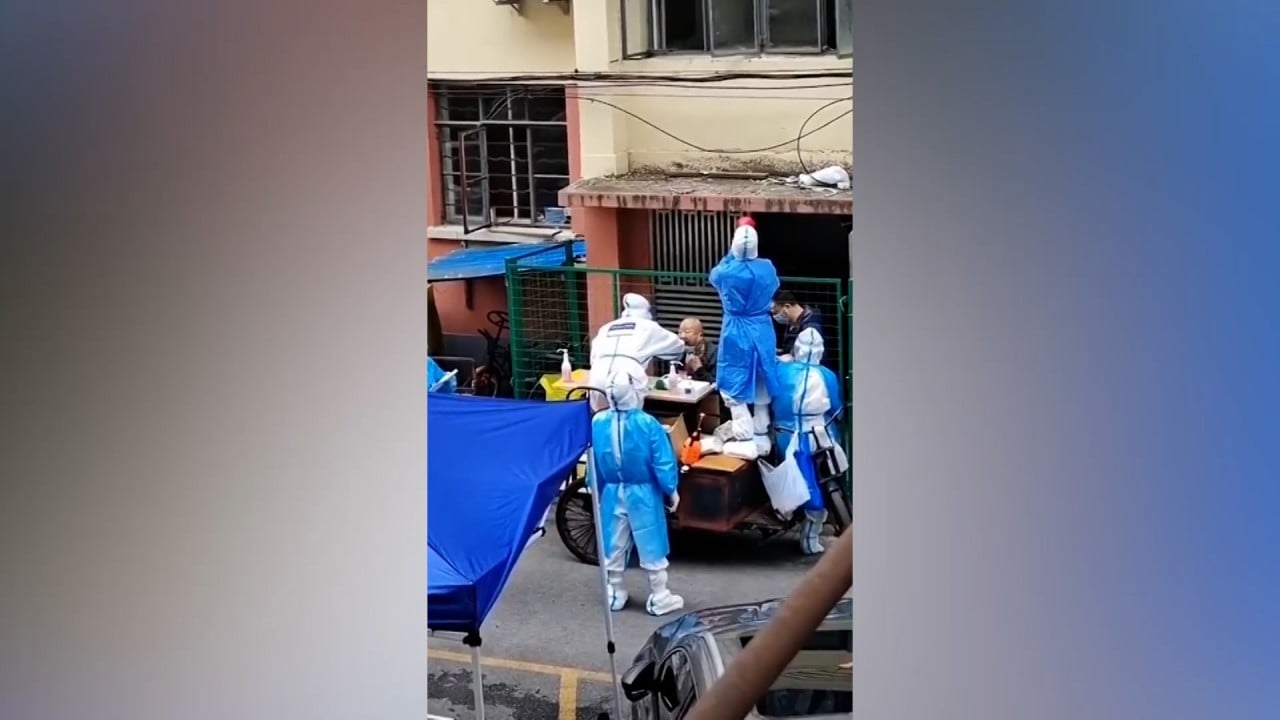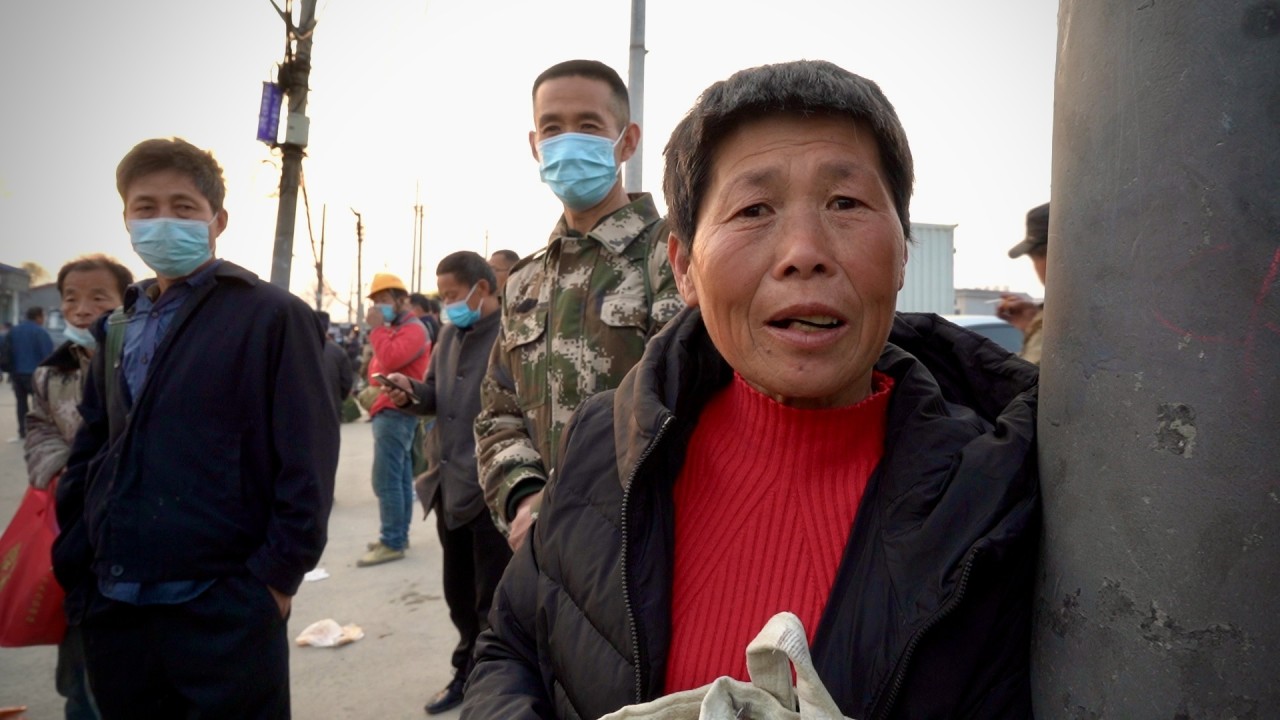
Coronavirus: affluent Beijing district set for another round of Covid-19 tests from Tuesday
- China’s capital reported 41 cases on Monday as it introduces measures to stop the spread for residents returning from Labour Day holiday
- Secondary infections largely from big gatherings over meals, unvaccinated people and patients who visited a lot of places, according to Beijing CDC official
Chaoyang district – where 40 per cent of the 400 cases in the current wave have been found – will carry out a further three rounds of tests from Tuesday to Thursday, local officials said on Monday.
The district, an affluent area that is home to some 3.5 million people, had earlier said it would conduct two rounds of mass testing on May 1 and 3, after completing three rounds in April.
The Universal Studios theme park has been closed since Sunday and the Palace Museum will close its indoor exhibition halls from Tuesday. Play equipment in Chaoyang Park, one of the biggest in Beijing, was blocked off from Monday.
Beijing Ditan Hospital in Chaoyang on Monday said it had closed its outpatient and emergency departments and suspended admissions. From Thursday, people entering the hospital will have to show a negative Covid-19 test result from the previous 48 hours.
The city has reported 400 infections across 14 districts since April 22, according to health authorities.
Pang Xinghuo, deputy director of the Beijing Centre for Disease Control and Prevention, on Monday said secondary infections in the current wave involved large gatherings over meals, people who were unvaccinated and patients who had visited a lot of places.
Shanghai posts 58 new Covid-19 cases in unguarded low-risk zones
Officials in Chaoyang have been checking test results of food market staff in the district, state broadcaster CCTV reported.
Cold-chain workers must be tested every day, while those working in fresh food markets are tested every two days, it added. Officials have also kept tabs on food prices to prevent price gouging.
Covid-19 test results must be shown before people heading back to work and school after the Labour Day holiday enter public facilities in Beijing. The tests, which will be required indefinitely, will be free from Tuesday.
From Thursday, the end of the five-day break, residents will have to show proof of a negative PCR test result from the previous seven days to use public transport and enter office buildings, entertainment venues and sporting facilities.
Municipal authorities have required testing agencies to charge less for PCR tests “to meet the demand for routine Covid-19 control”.
The maximum charge for a Covid-19 PCR test will be lowered to 19.7 yuan (US$3) from 24.9 yuan from Tuesday, while labs can charge 3.4 yuan for each pooled testing sample, according to the Beijing municipal medical insurance bureau.
Chinese tier-one cities lose their shine in wake of strict Covid-19 restrictions
The strict approach across the country is coming under pressure as more countries ease restrictions and the draconian measures take a high economic toll on the world’s second-largest economy.



